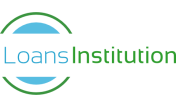What is a Debt Consolidation Loan?
A debt consolidation loan is a financial product that allows you to combine multiple debts into a single loan with one monthly payment. This can simplify your debt management by consolidating credit card balances, personal loans, and other high-interest debts into one loan, often with a lower interest rate.
By streamlining your debt payments into a single monthly instalment, you can reduce the risk of missing payments and potentially improve your credit score over time. Debt consolidation loans can be a practical solution for those who are struggling to manage multiple debts and wish to organise their financial commitments more effectively.
Why a Debt Consolidation Loan?
A debt consolidation loan can be a viable solution for individuals seeking to simplify their financial obligations and potentially reduce their overall debt costs. By consolidating multiple debts into one manageable payment, you can alleviate the stress and confusion of juggling various repayments.

Moreover, debt consolidation loans can provide the opportunity to secure a lower interest rate, which can lead to significant savings over time. For those committed to improving their financial health and maintaining disciplined repayment habits, a debt consolidation loan can be an effective tool to achieve greater financial stability.
How Debt Consolidation Works: Simplifying Your Payments
Debt consolidation works by taking out a new loan to pay off multiple existing debts. This new loan typically comes with a lower interest rate, reducing the amount of interest you’ll pay over time. By consolidating your debts, you replace multiple monthly payments with just one, making it easier to manage your finances and stay on top of your repayment schedule.
The process usually involves applying for a debt consolidation loan, using the loan to pay off your existing debts, and then making monthly payments on the new loan. It’s important to ensure that the new loan’s terms are favourable and that you can comfortably afford the payments to avoid further financial strain.
Types of Debt Consolidation Loans
There are several types of debt consolidation loans available to suit different financial situations. The most common ones include secured loans, unsecured loans, and balance transfer credit cards.
Secured loans are backed by an asset, such as your home or car, which serves as collateral. These loans often come with lower interest rates but carry the risk of losing the asset if you fail to make repayments. Unsecured loans, on the other hand, do not require collateral and are based on your creditworthiness. Though they may have higher interest rates, they pose less risk to your assets. Balance transfer credit cards allow you to transfer existing credit card debts to a new card with a lower introductory interest rate, but this rate may increase after a specified period.
Advantages and Disadvantages of Debt Consolidation Loans
Advantages
One major advantage of debt consolidation loans is the potential for lower interest rates compared to your existing debts. This can reduce the overall cost of your debt and save you money in the long run. Additionally, having a single monthly payment can simplify your budgeting and make it easier to manage your finances.
Debt consolidation loans can also help improve your credit score over time by reducing the number of outstanding debts and demonstrating consistent repayment behaviour. This can open up further financial opportunities and better interest rates in the future.
Disadvantages
While debt consolidation loans offer several benefits, they also come with certain disadvantages. One potential drawback is the possibility of accruing more debt if you do not address the underlying spending habits that led to your initial debt. Additionally, secured loans carry the risk of losing your collateral if you fail to make timely repayments.
Another disadvantage is that some debt consolidation loans come with fees and charges, which can add to the overall cost of the loan. It is essential to carefully review the terms and conditions before proceeding with a debt consolidation loan to ensure it is the right solution for your financial situation.
How to Apply for a Debt Consolidation Loan
Applying for a debt consolidation loan involves several steps. First, you should assess your financial situation to determine the total amount of debt you wish to consolidate. This includes reviewing your credit report and understanding your credit score, as it will play a significant role in the loan approval process.
Next, research and compare different lenders to find the best loan terms and interest rates. Once you have selected a lender, gather the necessary documentation, such as proof of income, identification, and details of your existing debts. Submit your application and await approval. Upon approval, the lender will typically disburse the loan amount to pay off your existing debts, leaving you with a single monthly payment to manage.

Impact on Credit Score
Debt consolidation can have both positive and negative impacts on your credit score. Initially, applying for a new loan might cause a small dip in your score due to the hard inquiry made by lenders. However, if you use the loan to pay off multiple high-interest debts and make timely payments on the new loan, your credit score can improve over time.
Consolidating your debts can also lower your credit utilisation ratio, which is a significant factor in your credit score. By reducing the amount of available credit you’re using, you can positively influence your score. It’s essential to continue practising good financial habits and monitoring your credit report regularly.
Debt consolidation and refinancing
Debt consolidation and refinancing are financial strategies used to manage and reduce debt. The consolidation involves combining multiple debts into a single loan with one monthly payment and often a reduced interest rate. This can simplify your financial life and potentially lower your overall repayment amount.
Refinancing, on the other hand, involves replacing an existing loan with a new one, usually to benefit from a lower interest rate or better terms. Both strategies can be beneficial depending on your financial situation, but it’s essential to understand the differences and choose the one that aligns with your goals.
Debt Consolidation vs. Debt Management: Which is Better?
Debt consolidation and debt management are two different approaches to handling debt. The first involves taking out a new loan to pay off existing debts, while debt management involves working with a credit counselling agency to create a repayment plan and negotiate with creditors on your behalf.
It can be a good option if you have high-interest debts and can qualify for a lower-rate loan. Debt management, on the other hand, may be suitable if you need help organising your finances and negotiating better terms with creditors. Both options have their advantages, and the best choice depends on your individual financial situation and goals.
Debt Consolidation vs. Personal Loans: What You Need to Know
Debt consolidation loans and personal loans are similar but have distinct purposes. A debt consolidation loan is specifically designed to combine and pay off multiple debts, often with a lower interest rate and a single monthly payment. Personal loans, however, can be used for various purposes, including debt consolidation, home improvements, or other significant expenses.
When considering a personal loan for debt consolidation, it’s important to compare interest rates, fees, and repayment terms to ensure it offers a financial benefit. Both types of loans can help you manage your debt, but it’s crucial to choose the one that aligns with your financial needs and goals.

